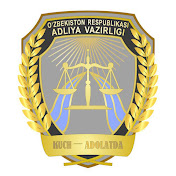An Expert Discussion on "Elections as a New Stage in Deepening Democratic Reforms and the Practical Implementation of the Updated Constitution" Held in Tashkent
2024-10-17 10:00:00 / News of ministry

On October 17, 2024, within the framework of the week of international cooperation initiatives at the Renaissance Hall Complex in Tashkent, an international event was organized on the topic “Elections as a new stage in deepening democratic reforms and putting into practice the renewed Constitution.”
For information: more than 50 conferences, roundtables and practical dialogues are organized by research and analytical centers, business community, ministries and agencies in cooperation with more than 300 foreign partners within the Forum. During this international forum, it is expected to make decisions regarding the signing of relevant agreements with foreign countries and international organizations, and the implementation of joint projects.
The main goal of the event on the theme “Elections as a new stage of deepening democratic reforms and the practical implementation of the renewed Constitution” is to discuss the importance of elections, innovations in electoral law and their current effectiveness within the framework of a new stage of democratic reforms in Uzbekistan, as well as to convey to the world community the essence of legal reforms.
The event was attended by officials from state bodies, international experts, lawyers, representatives of civil society institutions, the media, and political parties. The participants discussed the significance of elections, innovations in electoral legislation, and their practical implementation, in the context of the ongoing democratic reforms in Uzbekistan, through an open dialogue.
The event consisted of two sessions. In both sessions, the work done in the field and best practices were discussed, with the participation of national and international experts, as well as practical solutions.
During the session, the newly revised Constitution firmly established Uzbekistan as a “legal state”, and the provisions regarding human rights and freedoms have been tripled. The inviolability of human dignity and honor has been strengthened, and it has been emphasized that the provision of these rights and freedoms is the highest obligation of the state and is fully consistent with international legal norms.
At the international event, experts from various countries, including the USA, Poland, Ireland, Finland, Sweden, South Korea, Turkey, and Kazakhstan, acknowledged the work done by Uzbekistan in the fields of electoral law, best practices, and practical solutions.
News in election law. The participants noted that the new version of the Constitution has further strengthened strong parliamentarism and the powers of local representative bodies.
In particular, the absolute powers of the Legislative Chamber were increased from the current 5 to 12, and the Senate from 14 to 18. The control functions of the Parliament over the executive and law-enforcement bodies have been expanded. 33 powers of mayors (khakims) were transferred to local councils (Kengash). This serves to create an environment of active competition between parties and candidates.
Additionally, based on the constitutional law, which was introduced on December 18th, 2023, new regulations have been established for the implementation of a mixed electoral system in elections to the legislative chamber. 75 deputies will be elected based on the majority system, meaning that voters will vote for their preferred candidate, and the remaining 75 will be elected based on votes given to political parties under the proportional system. Currently, the mixed system is used in approximately 40 countries around the world.
The participants discussed the benefits and potential of this system, which would ensure greater participation of the public in elections. Experts argue that this reform would improve the balance of political power and guarantee the legitimacy of elections in accordance with best international standards.
Gender equality and inclusion. The role of women in politics was discussed separately during the event. It was noted that the role of women has increased in the organization and management of the electoral process, as well as in the nomination of candidates. In order to ensure equal rights and opportunities for men and women in forming the election commissions, it was proposed that the proportion of women among candidates for membership of the regional electoral commissions should be at least 30%, and the proportion of women nominated by political parties for deputy should be at least 40%.
Currently in practice, women make up 44.7% of the total number of candidates for parliamentary deputies, and 42.5% of candidates for local councils (Kengash).
Additionally, the practice of involving young people and socially active individuals with disabilities in the process of forming election commissions has been introduced.
Digitization of electoral processes. Another significant aspect is the digital transformation of election procedures. The “E-Election” information system has been implemented in all election-related processes. Bureaucracy, excessive time consumption and movement of documents in election procedures have been reduced.
Ensuring human rights. The event also addressed recent legal reforms aimed at strengthening human rights in Uzbekistan. Foreign experts acknowledged that international human rights standards are being systematically and progressively incorporated into national legislation and law enforcement practices in Uzbekistan.
Today, more than 80 international documents in the field of human rights and freedoms ratified by Uzbekistan, including the provisions of 7 basic UN treaties and 4 optional protocols, are reflected in the national legislation. This clearly shows the country’s efforts to implement international standards into the national legal system.
At the event, a presentation was made by international experts on the analysis of democratic changes in Uzbekistan. Issues of international cooperation in the field of human rights were also discussed.
The event was a significant platform for discussing crucial reforms aimed at enhancing democratization and human rights in Uzbekistan. The initiatives and proposals presented at the event reaffirmed Uzbekistan's commitment to upholding international standards in human rights protection and promoting democratic change.
Ministry of Justice
Information service


